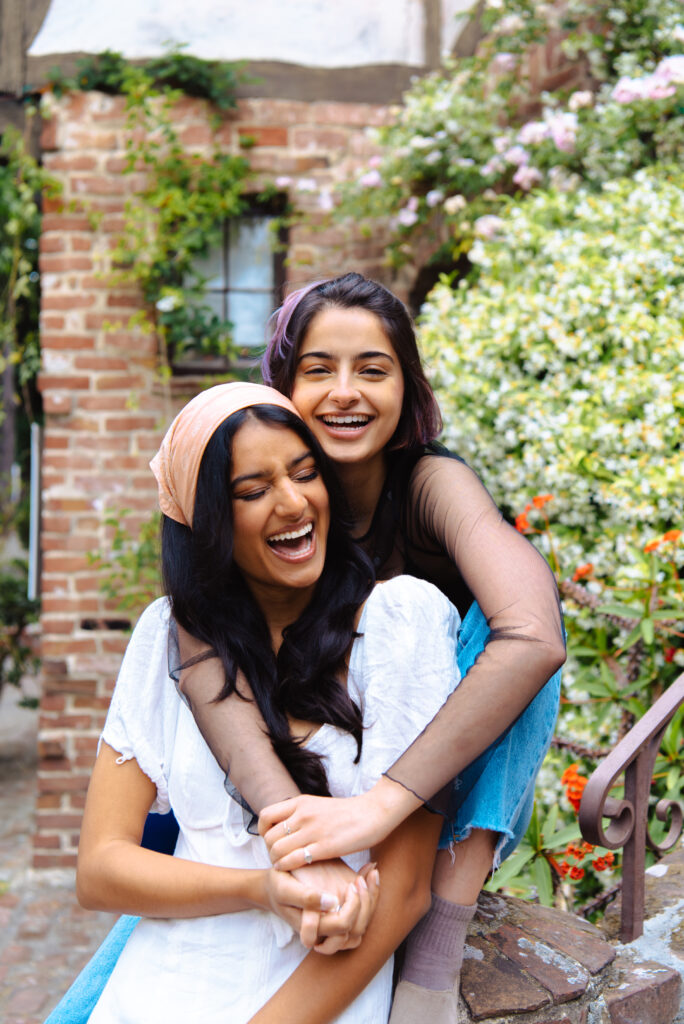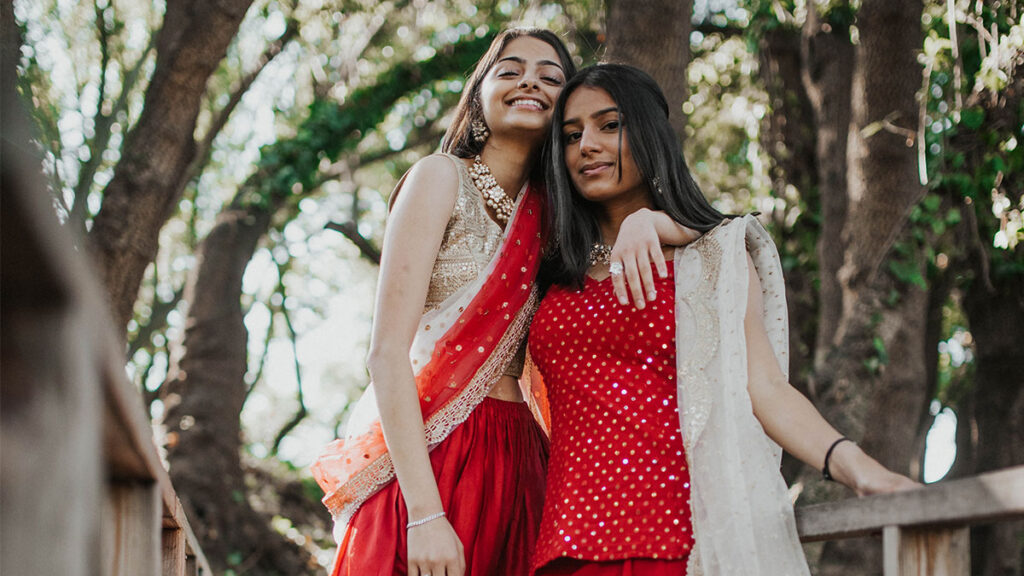Sufi Malik and Anjali Chakra Travel the World for Culture, Diversity, and More Visibility
Vacationer Magazine features Anjali Chakra and Sufi Malik, a traveling Indian-Pakistani couple, who want more visibility for the queer South Asian community.
Vacationer Magazine’s mission is to highlight our community’s diversity and how we travel. So, we jumped at the chance to talk to Anjali Chakra and Sufi Malik, a queer South Asian couple that has an untamed wanderlust for new cultures, food, and people. The globetrotting millennials are not only content creators, but Chakra is also a wedding planner and Malik is a photographer, and their backstory is worth telling.
Chakra was born in Ottawa, Ontario, Canada, and raised in the San Francisco Bay Area, where she still manages her wedding and events planning business. On the opposite coast, Malik is a New Yorker. She was born and raised in the Bronx. Currently living in Brooklyn, the newly engaged couple plans to tie the knot in May 2024 – an unlikely pair because of their different ethnicities – Indian and Pakistani.
That’s just one of many topics addressed in this very candid conversation with Chakra and Malik. The couple opens up about their intersectionality, why they’re not fans of Paris, the resources they use to navigate the world as a queer couple, and their excitement for more visibility for the queer South Asian community.
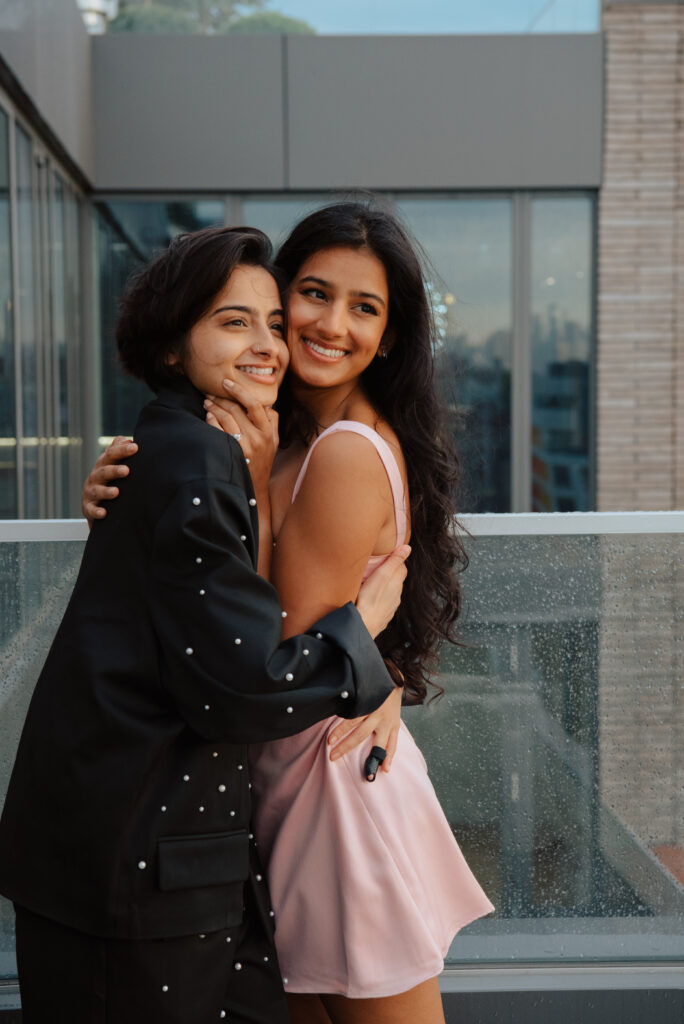
Vacationer Magazine: How long have you been traveling together? What was your first trip together?
Anjali Chakra: Oh! I’m going to answer this one! We’ll celebrate five years together in July. Our first trip together was to Miami. I took Sufi as a surprise. It was kind of my thank-you gift for uprooting her entire life and planning to move out to California. I knew the transition period was going to be difficult, so I wanted to do something celebratory, light-hearted, and fun; so, we went to Art Basel together, and we went to Disney World in Orlando Orlando because Sufi had never been.
It was fun, and of course, it was a domestic trip, so we didn’t have as many concerns about our safety as a queer couple, especially in Miami at Art Basel. We were really going to all these art events that were full of queer people, and they had so many other events dedicated to queer artists. It was a really nice trip. I think Miami in December is beautiful. For me, it wasn’t much of a change because I was coming from California, but for Sufi, it was definitely a break from the cold, and I would definitely do that trip again.
How do you identify on the LGBTQIA spectrum? Does how you identify influence the way your travel?
Sufi Malik: I identify as a lesbian and I think travel as a queer couple has an impact on where we think we can go and what places we’ll be safe to travel to or visit. We try to factor that into our planning. If we’re going to a place that is not LGBTQ+ friendly, we’ll go with a big group of people so that we have some sort of safety with folks we know when we’re out there.
Anjali Chakra: Totally agree! I identify as bisexual, and I am cisgender. I feel the same way. If a place is not LGBTQ+ friendly, I prefer to go with a bigger group, and at the very least I look for how friendly and safe a country is for solo women travelers.
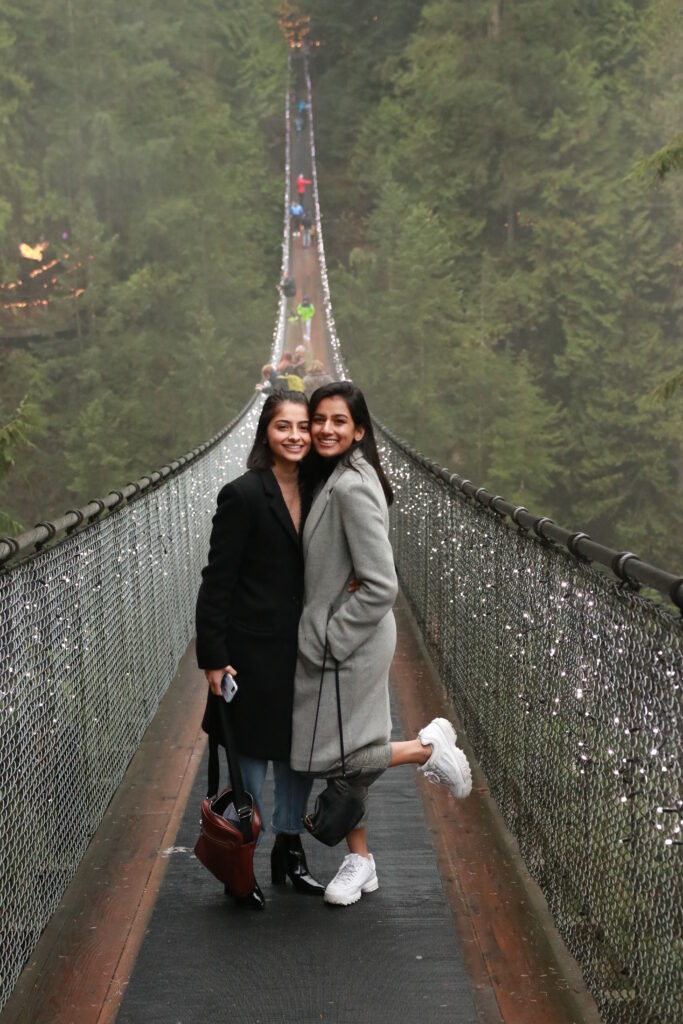
So, out of curiosity, if you’re doing research, what resources do you use as a queer couple to find that information?
Chakra: I will use social media pretty heavily because I think there’s a lot of fearmongering. Anything that’s related to the government or the tourism board. I get those STEP alerts from Morocco. They just go off for some of the most absurd things that are happening domestically here in the US, but the alerts still recommend that you don’t travel to Morocco because “XYZ” is happening.
Some places don’t have LGBTQ+ laws on paper, but there’s a thriving and very resilient queer community based there. So, I love looking on social media and seeing queer traveler accounts, especially women who are in sapphic relationships and their experiences in a specific destination. Also Reddit, I know it’s another form of social media, but people go in-depth on Reddit. It’s really helpful.
Malik: I agree with Anjali, but I think about where I go, and usually, it’s TikTok or Instagram. A lot of queer couples on social media are really transparent when it comes to traveling and their safety and whether they felt comfortable when traveling. It doesn’t even need to be a sapphic couple. It can be any LGBTQ+ couple. I’ve seen gay men on TikTok and Instagram who are married, engaged, or whatever and they talk about their experiences too. So, I think it’s relevant regardless of gender and identity.
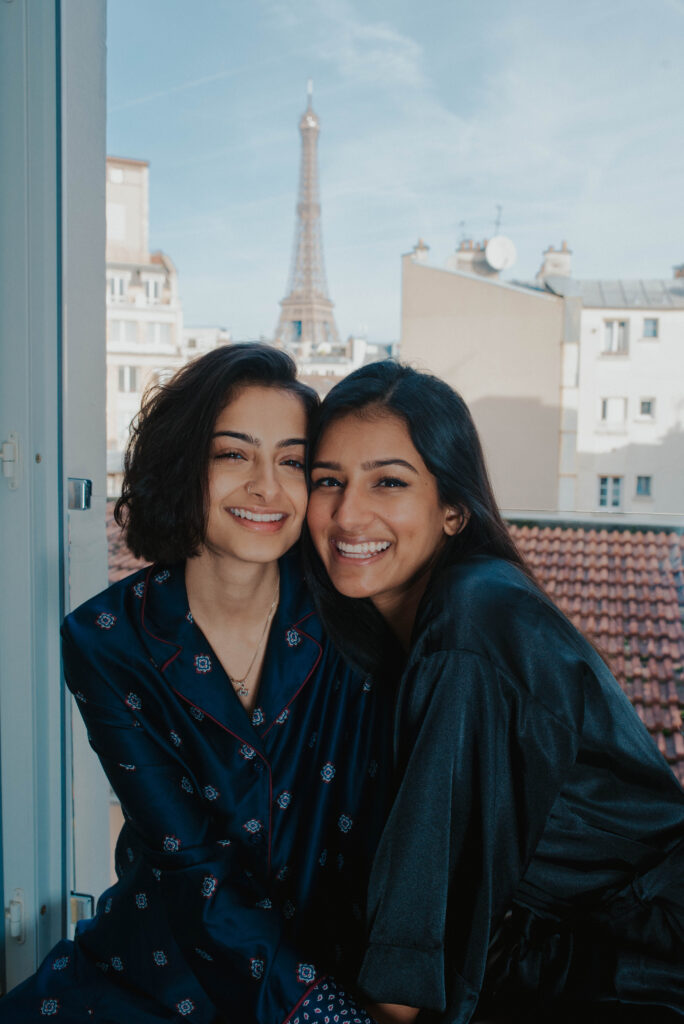
You are both intersectional LGBTQ+ travelers, which means you sometimes have to make travel decisions based on other aspects of your lives such as being a woman, nonbinary, a different ethnicity, or religion, etc. Do these aspects of your life guide how you navigate travel?
Chakra: I think Paris is a good example. Don’t get me wrong. I love France, but Paris is one of my least favorite places in the world. And I think there is undeniably a lot of racism and generally that outsiders are not welcomed in that particular part of France. After the experiences that we had there, I think we started to take that into account more – like what is the diversity of the place.
I don’t think it will ever deter us from visiting a place if it lacks diversity. For example, in Oslo, Norway, we found a very diverse group of locals to spend time with while we were there. If we know a place we’re visiting is not as diverse and foreigners don’t feel as welcomed, especially foreigners with darker skin tones; those factors impact how much time we dedicate to exploring a place.
Malik: I agree with what she’s saying. Paris is a good example. We were in Berlin and that was a good example too. We were staying with a diverse group of friends when we were in Berlin, but we were physically attacked on a train. Thankfully, passengers on the train were able to stand between me and Anjali to stop him. That was intense!
Chakra: And that’s supposed to be an LGBTQ+-friendly place.
Malik: Yeah, we have to kind of blend in if we feel like we’re in a space where we are not going to be welcome. Gauging energy is really important too, so we have to be on our toes when we’re traveling as a queer couple. Even within the States, we did a cross-country trip from New York to California a few years ago and we got stranded in Utah because my car decided to break down… of all places in Utah. And we were staying in this really small town and a really small hotel. Our heater wasn’t working in our room, so we had to act like we were sisters.
Chakra: We were in a very, very small town that was only 900 people.
Vacationer: Well, anything outside of a metropolitan area, and you’re probably going to get some of that and experience that uneasiness of “mmm, should I really be here?”
Malik: Yeah! So we try to mold ourselves depending on what our environment is to stay out of drama and stay safe.
Vacationer: It’s unfortunate that we have to do that, but you have to do what’s best to stay out of harm’s way when traveling.
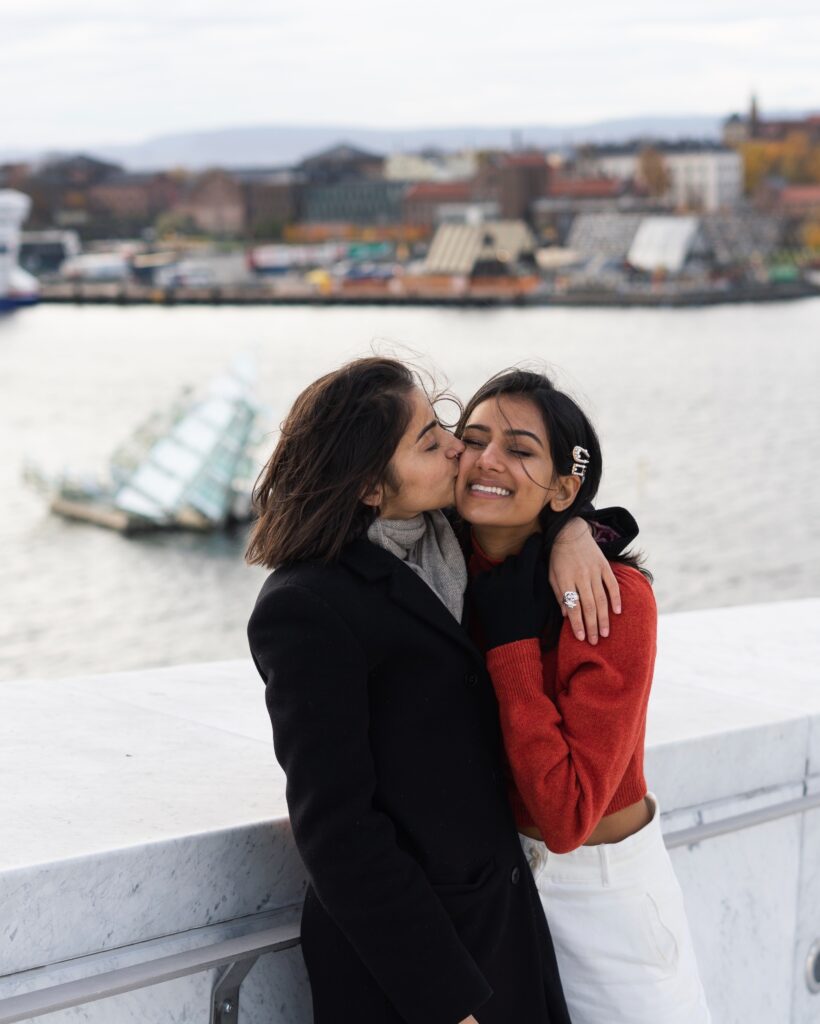
As you continue to travel around the world, what are some specific myths and stereotypes you hope to dispel about being LGBTQ+, and or being a person of color?
Chakra: I think for us specifically… the fact that we exist! As queer South Asian women, at least at the time when Sufi and I started creating content, the biggest conversation that we kept having was that there were no content creators that were queer, South Asian, femme, couple that we could find out there. And now, of course, Sufi doesn’t identify as femme all the time.
I think back then we couldn’t find other couples that looked like us out there. And nowadays, there have been so many amazing people popping up who are creating content who are open, queer or sapphic, and South Asian. It’s been really, really nice to see!
In the global queer community, there hasn’t been a whole lot of visibility for queer South Asian people.
Malik: I’m Pakistani and Anjali is Indian, and both of those countries politically hate each other. Instead of a divide, we bring people together, with that part of South Asia at least. Growing up, I saw a lot of Hispanic couples that were like femme and then a lot of white couples. I didn’t see any other ethnicities. I feel like there is more representation now than there was when we started out making content, which is cool because there’s more visibility.
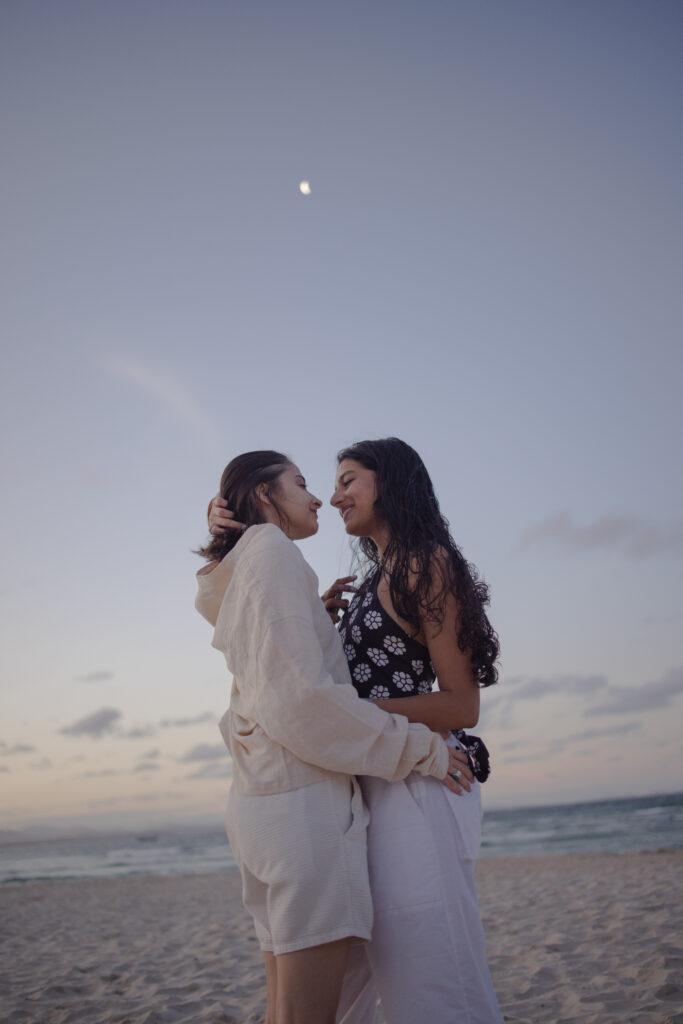
That visibility is great! I have to go back to something you said. You’re Pakistani and Anjali is Indian. How was it coming out to your family and also telling them you’re getting married knowing the tension between India and Pakistan?
Chakra: I’m very fortunate to have a very progressive and accepting family. In terms of the India-Pakistan issue that many South Asian families might have with our relationship. My family is quite diverse, starting with my parent’s generation with marrying outside of culture and faith. I won’t get into the specifics of my family’s business, but it was not an issue for my family that Sufi was Pakistani or Muslim.
Before we became content creators, a close friend shot a few photos of us (Anjali and Sufi), posted them on Twitter, and they blew up! Then I posted the second set of photos that we did and they blew up, too! So, there were newspaper articles about how our photos had gone viral, but they focused on the fact that Sufi was Pakistani and Muslim, and I was Indian and raised Hindu. They really zoomed in on that and that really isn’t a lens – then or now – that we choose to view our relationship through. But I understand why that story was so impactful for a South Asian audience.
I think with my extended family – when we had this viral experience of everyone knowing at once and we were in the newspapers in South Asia – I think my parents very much took the stand of – if we’re supportive and we don’t have anything negative to say then who’s going to say anything negative to us. So, they responded well to that even though it was new for them too. My mom was like, “I’m going to put it in a family group chat that you were in the news, and if anyone has anything bad to say they can say it behind closed doors because they definitely won’t be saying it to me.” So, yeah, I’m very, very lucky and I know that’s not a reality for every South Asian queer person. Although I do wish it was.
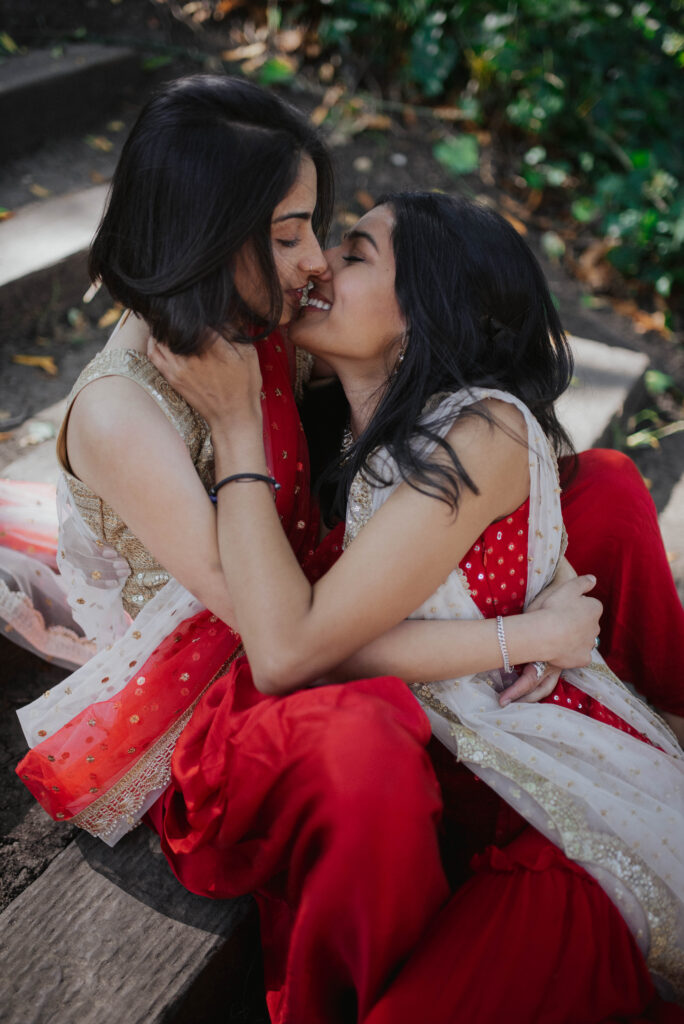
Malik: My experience was the total opposite of what Anjali’s was. I grew up in a very conservative Muslim family. I grew up around a lot of Muslims in general whether they were Indian or Bengali from Bangladesh. I also grew up around Christians. I had a lot of Hispanics around me, Black folks, Mexicans, Puerto Ricans, Dominicans, and Haitians. But my core community was Muslim so my coming out in general was a very big deal.
I’m a 100-percent sure that there are a lot of people in my family that are queer in the generation before me, but they’re not out. But I grew up in New York, so I had resources and I had access to different things that they didn’t. The number one thing is that I had access to the freedom to be who I am and express myself.
I think going viral in that sense and having a lot of visibility was very exhausting to me because I had to deal with a lot of family members not understanding and not accepting and I still kind of deal with that, but I’ve made my peace with it knowing that I will live in my truth. It doesn’t matter who likes me and who doesn’t and who agrees with me or doesn’t.
We’ll share more details about Anjali Chakra and Sufi Malik’s travel style soon, but until then you can follow Anjali (@anjalichakra) on Instagram and TikTok, and Sufi on Instagram (@sufi.sun) and TikTok (@sufisun)!
